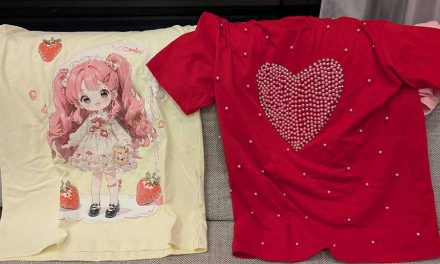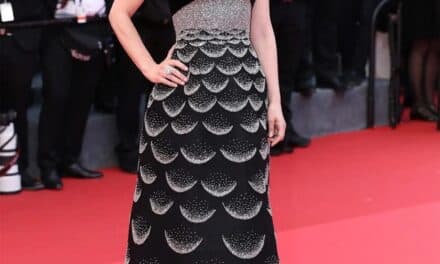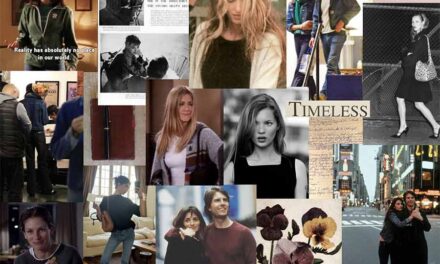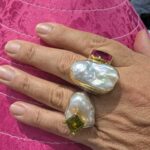When TikTok sensation Becca Bloom married David Pownall in Lake Como, the internet erupted in a collective gasp. The multi-day celebration reportedly cost in excess of $6 million, featured four designer gowns, and was capped with cinematic details like rainbow smoke, truffle-infused banquets, and a perfectly timed rain-kiss moment that looked straight out of a Netflix drama. Within hours of the official photographs dropping, the wedding was being hailed as the “RichTok Super Bowl.”
But what really raised eyebrows wasn’t just the cost, the dresses, or the opulence. It was the fact that Becca’s wedding was covered by Vogue—the ultimate fashion bible. In an era where influencers are their own media empires, why would a TikTok star—who already has millions of followers and no shortage of brand deals—hand over the keys of her most personal life event to a traditional media outlet? Was she paid? Did she need to be? Or was this collaboration about something far more strategic?

Did Vogue Pay Becca Bloom?
The short answer is: there’s no evidence that Becca was paid by Vogue to showcase her wedding. Unlike brand sponsorships or influencer collabs, editorial features in Vogue generally aren’t cash transactions. When Vogue decides to feature a wedding, it’s because the story has cultural resonance, visual appeal, and star power. The magazine gets clicks, shares, and cultural relevance, while the bride gets prestige and immortality in the pages of one of the most iconic fashion publications in the world.
However, what did happen is a classic win-win: Vogue got the inside track on the internet’s most lavish wedding of the year, and Becca Bloom got more than just a write-up. She gained cultural legitimacy outside the bubble of TikTok. In doing so, she transformed from “just another influencer” into a figure whose wedding sits alongside the likes of Serena Williams, Priyanka Chopra, and Paris Hilton in Vogue’s archives.
Prestige Over Payment
Why would Becca agree to this? The answer lies in understanding the currency of prestige.
For influencers at Becca’s level, money is not the driver—narrative control and cultural validation are. TikTok might have made her famous, but TikTok alone won’t cement her legacy. Being in Vogue does. It places her squarely in the lineage of celebrities, fashion icons, and cultural tastemakers who’ve had their weddings immortalized by the magazine.
Even the most successful influencers crave validation from the old guard. It’s one thing to rack up 50 million views on a wedding TikTok; it’s another to say, “My wedding was in Vogue.” That line carries weight at every dinner party, on every podcast appearance, and in every brand negotiation that follows.
Storytelling at Its Finest
Another reason Becca Bloom chose Vogue is that the publication offered a platform for storytelling that social media simply can’t replicate.
On TikTok, her wedding could have been reduced to quick clips of outfits, food, and fireworks. On Instagram, it might have been carousels of glossy photos. But Vogue gave her a curated narrative:
-
The love story leading up to Lake Como
-
The significance of her designer gowns (Oscar de la Renta, Van Cleef & Arpels jewels, etc.)
-
The cultural symbolism of spending $6 million in the age of “quiet luxury”
-
The aesthetic and emotional highlights, framed not as flexes but as art
This wasn’t content; it was legacy media. A Vogue feature acts like a scrapbook on steroids, forever preserving her wedding in the context of high culture rather than fleeting virality.
Control and Coordination
Working with Vogue also meant controlling the reveal.
Becca went unusually quiet on TikTok around her wedding, sparking speculation and building anticipation. When Vogue’s coverage finally dropped, it felt like a cinematic premiere. Instead of thousands of fan-shot clips and chaotic leaks, she had a single, polished, high-impact reveal orchestrated through the most respected fashion outlet in the world.
This is a savvy influencer move. By giving Vogue exclusivity, she bought herself editorial control disguised as journalism. Fans didn’t just see a wedding—they saw her version of the wedding, told exactly the way she wanted.
Strategic Brand Partnerships
Let’s not ignore the commercial undertones either. Weddings at this level aren’t just personal milestones—they’re branding opportunities. Becca reportedly had Lancôme makeup sponsorships, Van Cleef & Arpels jewelry placements, and multiple designer shoutouts woven into the wedding coverage.
A Vogue feature transforms these brand mentions into editorial legitimacy. Instead of looking like #ad campaigns on TikTok, they appear as natural extensions of a high-fashion wedding narrative. Brands love this; fans swoon; and Becca solidifies her role as the ultimate tastemaker.
The New Age of Weddings
Becca Bloom’s wedding represents a new era where weddings are no longer private family milestones but public media events. Like the royal weddings of the past, influencer weddings are now spectacles that serve as both personal celebrations and cultural performances.
-
For her followers, it was aspirational escapism.
-
For brands, it was an unparalleled product-placement opportunity.
-
For Vogue, it was digital gold.
-
For Becca, it was the chance to bridge TikTok virality with old-world legitimacy.
Critics vs. Fans
Of course, not everyone sees it this way. On Reddit and in comment sections, critics suggested the wedding was overly staged, excessively branded, and dripping in performative wealth. Some asked whether anything about it was truly personal, or if it was just one giant ad campaign in disguise.
But to Becca’s fans, the spectacle was the point. She’s built her brand on showcasing a lavish, unattainable lifestyle. The wedding was the ultimate payoff—a real-life fantasy come to life. And for those who dream of “living like Becca,” the Vogue spread only reinforced her place as the queen of RichTok.
Why Vogue Didn’t Pay—and Didn’t Need To
In the end, the collaboration between Becca Bloom and Vogue wasn’t about cash exchanging hands. It was about mutual value creation:
-
Vogue got the year’s most viral wedding and a surge in digital traffic.
-
Becca got cultural validation, narrative control, and editorial immortality.
-
Brands got exposure wrapped in glossy prestige.
If you measure success not in money but in reach, relevance, and resonance, this collaboration was priceless.
Conclusion: Legacy Over Likes
Becca Bloom didn’t need the money, and she almost certainly wasn’t paid by Vogue. What she wanted—and achieved—was far more valuable: a legacy moment that transcends TikTok fame.
Her Lake Como wedding wasn’t just a party. It was a brand statement, a media spectacle, and a cultural milestone. By collaborating with Vogue, Becca ensured that her story will live on long after TikTok trends fade.
In the world of influencers, likes and views pay the bills. But it’s moments like these—immortalized by Vogue—that build empires.
















You must be logged in to post a comment.